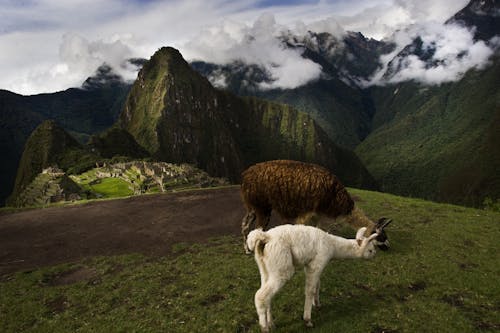
Unlock the Power of Alpaca: How to Start Your Own Private Label with The Alpaca Factory
Adding alpaca products to your inventory can be a smart, profitable move — especially with the surging demand for sustainable, high-quality natural fibers worldwide. In fact, the global alpaca fiber market was valued at approximately US$ 2.1 billion in 2022, with projections suggesting continued steady growth fueled by demand for ethical and eco-friendly textiles (source: Fact.MR Alpaca Fiber Market Study, 2023).
Whether you're launching your first alpaca wool business or looking to diversify an existing retail portfolio, choosing the right products is critical for success. This alpaca wholesale guide covers everything you need to know — from how to source alpaca products to comparing merino wool vs alpaca — so you can confidently select the best alpaca products for resale.

Why Sell Alpaca Products?
Alpaca wool is celebrated for its softness, durability, and sustainability — making it an increasingly popular choice for modern consumers who value ethical luxury. Unlike sheep’s wool, alpaca fibers do not contain lanolin, making them hypoallergenic and more breathable.
Key Alpaca Wool Benefits:
- 3x stronger and 7x warmer than sheep’s wool (source: Textile Exchange Alpaca Fiber Report, 2021).
- Naturally water-resistant and odor-resistant.
- Requires 30–40% less frequent washing than traditional wool products (source: International Alpaca Association).
- Alpacas produce about 1.5 to 2.5 kg of fiber per year, with a much lower environmental impact compared to cashmere goats.
- Their padded feet cause minimal soil erosion, and their grazing habits preserve pasturelands.
According to McKinsey’s 2023 Sustainable Fashion Survey, 67% of consumers now consider sustainable materials a key factor in their purchasing decisions — a significant opportunity when promoting alpaca products.
These advantages position alpaca items as top sellers in today's eco-conscious and premium fashion markets.

How to Choose the Best Alpaca Wholesale Products
When exploring alpaca wholesale products, focus on four essential categories to maximize your market appeal:
1. Clothing: Wholesale Alpaca Clothing Essentials
Wholesale alpaca clothing remains a core category, especially as consumers seek timeless, investment-worthy pieces.
When selecting items:
- Prioritize classic silhouettes like crewnecks, cardigans, and ponchos that appeal across demographics.
- Include a mix of 100% baby alpaca for high-end markets and alpaca-synthetic blends for affordability.
- Stock versatile neutral colors (gray, beige, cream) alongside seasonal accent shades.
Insight: According to a GlobalData 2023 report, neutral-colored apparel sales grew by 18% year-over-year, proving that basics with premium materials have enduring commercial value.
2. Accessories: Alpaca Accessories Wholesale Must-Haves
Accessories offer a lower entry cost and faster inventory turnover. Bestsellers include:
- Scarves and shawls
- Gloves and mittens
- Hats and beanies
- Socks and leg warmers
Outdoor gear, such as alpaca socks, remains highly profitable. In fact, the U.S. outdoor apparel market for wool socks alone is valued at over $1.2 billion (source: Statista, 2023).

3. Yarn: Wholesale Alpaca Yarn for the DIY Market
With the growth of DIY and crafting communities, wholesale alpaca yarn represents a high-margin niche:
- Offer baby alpaca and blended yarns (alpaca/silk, alpaca/merino).
- Provide eco-dyed and undyed color options to attract sustainability-focused artisans.
- Cater to both small-scale crafters and boutique knitting shops.
Craft yarn sales in the U.S. grew by 15% between 2020 and 2023, driven by home-based hobbies (source: Craft Yarn Council, 2023).
4. Specialty Items: Unique Alpaca Products for Business Differentiation
Stand out by offering:
- Handwoven home textiles like blankets and throws.
- Plush toys made from baby alpaca fleece.
- Home decor products — an emerging niche in sustainable luxury interiors.
Specialty products can yield margins 20–35% higher than apparel alone, depending on the uniqueness and craftsmanship level (source: Bain & Company Luxury Report, 2023).

How to Source Alpaca Products: Finding Reliable Wholesale Alpaca Suppliers
Choosing the right partners is essential for building a trustworthy alpaca wool business. Here's how:
- Work directly with mills and cooperatives: Ensure ethical sourcing, better fiber grades, and competitive pricing.
- Attend industry events: PerúModa, Alpaca Fiesta, and ITMA Textile & Garment Technology Exhibitions are excellent sourcing hubs.
- Request certifications: Certifications like OEKO-TEX®, GOTS (Global Organic Textile Standard), and Fair Trade ensure ethical standards.
- Ask for fiber grade specifications: Baby alpaca is less than 22 microns in diameter, while regular alpaca may be around 25–28 microns.
Pro Tip: Choose wholesale alpaca suppliers who offer transparency on sourcing practices, processing methods, and social responsibility.
Merino Wool vs Alpaca: What You Need to Know
If you're deciding between selling merino wool or alpaca, here's a data-backed comparison:
| Feature | Alpaca Wool | Merino Wool |
|---|---|---|
| Warmth | Higher (up to 7x warmer) | High |
| Softness | Ultra-soft (baby alpaca: ≤22 microns) | Very soft (≤24 microns) |
| Durability | Extremely durable (stronger fibers) | Durable |
| Water Resistance | Naturally water-repellent | Absorbs more moisture |
| Weight | Lighter (hollow fiber structure) | Heavier |
| Sustainability | Higher (lower resource use) | Sustainable but more resource-intensive |
(Sources: Textile Exchange 2021; Sustainable Apparel Coalition 2022)
While merino wool remains a strong competitor, alpaca wool benefits — especially its greater warmth, lightness, and lower environmental footprint — offer strong marketing advantages for eco-luxury positioning.

Common Mistakes to Avoid When Selling Alpaca Products
Avoid these common pitfalls when building your alpaca products for business line:
- Overordering niche products: Test specialty goods before large commitments.
- Neglecting seasonal planning: Launch new alpaca collections in late summer to capture fall and winter demand.
- Under-educating customers: Most U.S. buyers are unfamiliar with alpaca; offer educational materials that highlight the differences between cashmere, merino, and alpaca.
- Ignoring trends: The resale market for sustainable luxury is growing by 20% annually (source: ThredUp Resale Report, 2023). Position alpaca goods as lifetime investment pieces.
The Alpaca Factory: Supplying Premium Alpaca Wool for Your Brand
At The Alpaca Factory, we are not a retail brand, but a trusted manufacturing partner helping businesses worldwide integrate premium alpaca products into their collections.
From sourcing the finest Peruvian alpaca fibers to producing custom garments, accessories, and yarns, our manufacturing services help brands deliver quality, sustainability, and style — backed by generations of expertise in textile innovation.
Our Promise:
- Ethical sourcing
- High-grade fiber selection
- Customization flexibility
- Competitive wholesale pricing
Partner with The Alpaca Factory to bring the luxury and legacy of alpaca to your customers.

Final Thoughts: Building a Successful Alpaca Wool Business
Selecting the best alpaca products for resale is more than just following a trend — it's about delivering quality, authenticity, and sustainability. As the demand for natural luxury fibers grows, building a thoughtful, well-curated alpaca wool business positions you for success in both the fashion and lifestyle sectors.
Ready to take the next step?
Explore our alpaca wholesale products today and elevate your brand with the timeless elegance of alpaca.